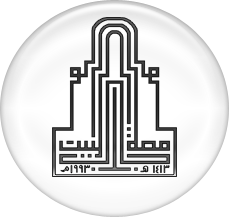| DC Field | Value | Language |
|---|
| dc.contributor.author | حسن خلف راضي | - |
| dc.date.accessioned | 2022-07-28T08:08:13Z | - |
| dc.date.available | 2022-07-28T08:08:13Z | - |
| dc.date.issued | 2021-06-05 | - |
| dc.identifier.uri | http://hdl.handle.net/123456789/2264 | - |
| dc.description.abstract | ملخص
تعكس هذه الدراسة إمكانية تبني الاقتصاد الأخضر كخيار استراتيجي للتنمية المستدامة في الاقتصاد العراقي على اعتبار أن الاقتصاد الأخضر بديل للاقتصاد التقليدي الذي يتأثر باستمرار بالصدمات الخارجية سواء كانت تلك الصدمات إيجابية أو سلبية، بل بالعكس يتأثر بالصدمات السلبية أكثر من الإيجابية كون الاقتصادات النامية عموماً والاقتصاد العراقي خصوصاً يتسم بانعدام المرونة لجهازه الإنتاجي في ظل الظروف التي بها الاقتصاد من هشاشة في بنيته الهيكلية وتزايد معدلات الفقر وارتفاع معدلات البطالة وارتفاع العجز في ميزان المدفوعات وعجز في الموازنة وتدني الإيرادات النفطية وكثير من المشاكل التي يعانيها. واليوم الاقتصاد العراقي مجبر لاعتماد هكذا استراتيجية توفر للمجتمع مستلزماته من السلع والخدمات الزراعية، وتوفر لأفراده أمناً غذائياً نظراً لتوفر الامكانيات والمقومات من أراضي شاسعة غير مزروعة، ومياه جوفية، وطاقة شمسية هائلة؛ بسبب ظروف العراق المناخية التي توفر الطاقة البديلة والنظيفة، وإمكانية تحقيق التنمية المستدامة من أجل مستوى أفضل من الحياة الاجتماعية والبيئية والاقتصادية. سيركز هذا البحث على الاقتصاد الأخضر وعلاقته بالتنمية المستدامة في الاقتصاد العراقي.
الكلمات المفتاحية: الاقتصاد الأخضر، الطاقة المتجددة، التنمية المستدامة، نشاط اقتصادي صديق للبيئة، الاستثمار في مجال الطاقة، الاستراتيجية.
Abstract
This study reflects the possibility of adopting the green economy as a strategic option for sustainable development in the Iraqi economy, given that the green economy is an alternative to the traditional economy, which is constantly affected by external shocks, whether these are positive or negative. On the contrary, it is affected by negative shocks more than the positive ones as the developing economies in general and the Iraqi economy in particular is characterized by the lack of flexibility for its production system in light of the conditions in which the economy is characterized by the fragility of its structure, the increase in poverty rates, the high rates of unemployment, the high deficit in the balance of payments, the deficit in the budget, the low oil revenues, and many other problems it suffers from. Today, the Iraqi economy is forced to adopt such a strategy that provides the community with its requirements of agricultural goods and services, and provides its members with food security due to the availability of capabilities and components of vast uncultivated lands, groundwater and huge solar energy due to Iraq's climatic conditions that provide alternative and clean energy, and the possibility of achieving sustainable development for a better level of social, environmental and economic life. This research will focus on the green economy and its relationship to sustainable development in the Iraqi economy.
Key words: Green Economy, Renewable Energy, Sustainable Development, Environmentally Friendly Economic Activity, Investment in the Energy Field, Strategy. | en_US |
| dc.subject | الاقتصاد الأخضر، الطاقة المتجددة، التنمية المستدامة، نشاط اقتصادي صديق للبيئة، الاستثمار في مجال الطاقة، الاستراتيجية. | en_US |
| dc.title | الاقتصاد الأخضر كخيار استراتيجي للتنمية المستدامة في الاقتصاد العراقي | en_US |
| dc.type | Other | en_US |
| Appears in Collections: | مج27، عدد 3 لسنة 2021
|

